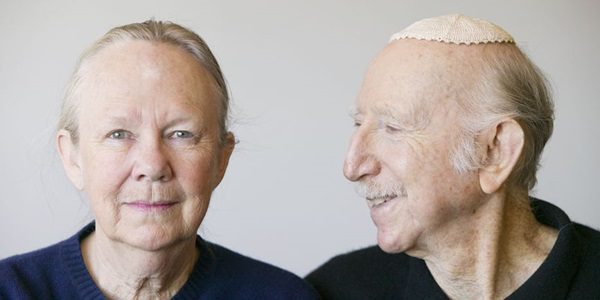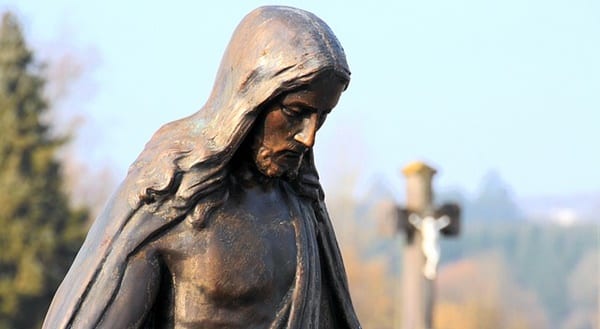 There are so many problems in the world. I mean, from Brexit to Trump to Clinton to the economy. There’s a lot of personal and social anxiety. I don’t know about you, but my natural inclination is to find someone else to blame. Of course, I don’t think of it as blame, per se. It’s more like, “Who’s responsible?!” Which is simply my favorite veiled attempt to find someone to blame.
There are so many problems in the world. I mean, from Brexit to Trump to Clinton to the economy. There’s a lot of personal and social anxiety. I don’t know about you, but my natural inclination is to find someone else to blame. Of course, I don’t think of it as blame, per se. It’s more like, “Who’s responsible?!” Which is simply my favorite veiled attempt to find someone to blame.
So, in the midst of personal and worldwide anxiety, when I’m talking with friends someone is likely to bring up some disparaging remarks about Trump. When I’m with my extended family, someone is likely to say some nasty things about Clinton. And my next door neighbor might bring up our neighbor across the street who always looks a little shifty … All of a sudden, things are better between us. We’ve momentarily forgotten about our anxiety as we’ve united against our scapegoat.
That’s how we divide the world into “us and them,” which usually comes in the form us “us against them” – us against our scapegoat. We see it everywhere in our world. Economic divisions of rich and poor. Racial divisions of white and black and brown. Political divisions of Republican versus Democrat versus Libertarian. Gender divisions of male and female and transgender. Christian versus Muslim versus Jew. Sexual divisions – Heterosexual, homosexual, bisexual. Christian denominational division – Methodist, UCC, Lutheran, Catholic … The list of distinctions that easily become “us against them” goes on and on.
The Scapegoat and Archaic Religion
Anthropologist René Girard claims that this way of managing our inner anxiety by uniting against a scapegoat is very ancient. Our ancestors lived in tribes, or groups of families. Tribes generally had their own gods, who blessed them above all other tribes. All tribes thought that they and their gods were special – that they were revered and other groups weren’t. But when conflict emerged within a tribe, they thought that their gods were angry at them. So, they would blame someone within their tribe, or maybe they’d capture a stranger from another tribe, and they channeled their inner hostility in an act of murder against their victim. Girard claims that archaic religions emerged from this ancient sacrificial pattern of scapegoating. Our ancestors thought this act of sacrifice appeased the gods, but in reality, it had nothing to do with the divine. There was nothing “sacred” about their violence. It was a purely human way of managing their own inner conflict.
The Difference Abraham and Sarah: From Curse to Blessing
But along came a different kind of tribe called the Jews. They had a similar story as the other ancient tribes of the world. They believed their God was on their side, that they were a special and revered people; that they were even chosen by their God. In this sense, the Jews seem like every other tribe of the ancient world. But there’s a big difference. It’s a difference that would change the world forever.
Jews, Christians, and Muslims consider Abraham and Sarah to be our spiritual parents. Notice how God called them. In Genesis chapter 12, God says to Abraham, “I will make you into a great nation, and I will bless you; I will make your name great and you will be a blessing … and all peoples on earth will be blessed through you.”
Do you see the difference? Authentic Jewish, Christian, and Islamic identity looks like the call of Abraham. In the specific context of Judaism, Jews are called. They are chosen. They are blessed. But according to this foundational story, Jews are not chosen to keep God’s blessing for themselves. God did not choose them in a way that made them special over and against others. They weren’t to use God’s blessing as a way to curse other nations. No, God chose them so that they would move beyond the archaic religious impulse of “us against them.” Instead, Abraham and Sarah would start a new course to fulfill God’s desire that all people on earth would be blessed. Through them God started a new movement that was “us for them.” The true God is revealed not through violent sacrifice of archaic religion, but through the revelation that God isn’t opposed to anyone. God is for us and for them.
How Jewish Wisdom Could Save the World
This is so important to world history. This ancient Jewish wisdom could save the world from our hostility and anxiety. It shows us a different way of living, one that is based on generously sharing God’s blessings upon us with others. But one of the things that I appreciate about the biblical authors is that they were very honest about how often they failed. Abraham’s descendants frequently forgot that they were called to be a blessing to all the families of the earth. At times they became a curse to other families, as they fell back into archaic religion’s “us against them” mentality, as opposed to the God given “us for them” mentality. The Bible tells us how they even committed acts of genocide against their enemies. And at other times, they became a curse to members of their own people – forgetting to bless the poor, the weak, and the marginalized among them.
But each time the ancient Jews forgot about their identity, their calling to bless all the people of the earth, including their own people, the prophets would remind them of who God called them to be – to be a blessing, not a curse, to everyone they meet.
And each time we fall into the old “us against them” mentality of archaic religion, the call to Abraham and Sarah reminds us of who we are. We are chosen to show the world a different way that leads us beyond the hostile dualism of archaic religion that pits us against one another. Especially during these anxious times, people who claim Abraham and Sarah as our spiritual parents would do well to remember their wisdom, that our job is not to curse others, but to be a blessing to all the families of the earth.
Image: Copyright: creatista / 123RF Stock Photo
Stay in the loop! Like Teaching Nonviolent Atonement on Facebook!















